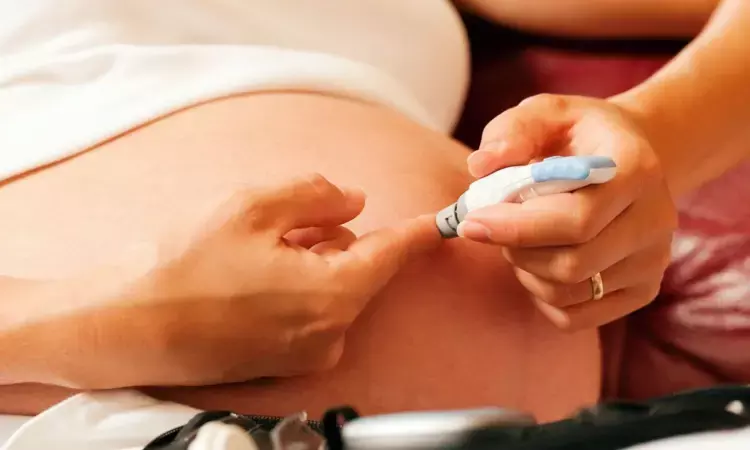- Home
- Medical news & Guidelines
- Anesthesiology
- Cardiology and CTVS
- Critical Care
- Dentistry
- Dermatology
- Diabetes and Endocrinology
- ENT
- Gastroenterology
- Medicine
- Nephrology
- Neurology
- Obstretics-Gynaecology
- Oncology
- Ophthalmology
- Orthopaedics
- Pediatrics-Neonatology
- Psychiatry
- Pulmonology
- Radiology
- Surgery
- Urology
- Laboratory Medicine
- Diet
- Nursing
- Paramedical
- Physiotherapy
- Health news
- Fact Check
- Bone Health Fact Check
- Brain Health Fact Check
- Cancer Related Fact Check
- Child Care Fact Check
- Dental and oral health fact check
- Diabetes and metabolic health fact check
- Diet and Nutrition Fact Check
- Eye and ENT Care Fact Check
- Fitness fact check
- Gut health fact check
- Heart health fact check
- Kidney health fact check
- Medical education fact check
- Men's health fact check
- Respiratory fact check
- Skin and hair care fact check
- Vaccine and Immunization fact check
- Women's health fact check
- AYUSH
- State News
- Andaman and Nicobar Islands
- Andhra Pradesh
- Arunachal Pradesh
- Assam
- Bihar
- Chandigarh
- Chattisgarh
- Dadra and Nagar Haveli
- Daman and Diu
- Delhi
- Goa
- Gujarat
- Haryana
- Himachal Pradesh
- Jammu & Kashmir
- Jharkhand
- Karnataka
- Kerala
- Ladakh
- Lakshadweep
- Madhya Pradesh
- Maharashtra
- Manipur
- Meghalaya
- Mizoram
- Nagaland
- Odisha
- Puducherry
- Punjab
- Rajasthan
- Sikkim
- Tamil Nadu
- Telangana
- Tripura
- Uttar Pradesh
- Uttrakhand
- West Bengal
- Medical Education
- Industry
Two-weekly self-monitoring of blood glucose okay for monitoring women with lifestyle-controlled gestational diabetes

Malaysia: A recent study published in the International Journal of Gynecology & Obstetrics evaluated 4-point per day self-monitoring of blood glucose (SMBG) every two weeks compared with every week. It found that in lifestyle-controlled gestational diabetes (GDMA1), 2-weekly is noninferior to weekly SMBG on the change in the levels of HbA1c (glycated haemoglobin).
In women with gestational diabetes mellitus (GDM) whose blood sugar is well controlled on a diet alone, the optimum SMBG frequency to control blood sugar is not established. University Malaya Medical Centre advised that SMBG should be less frequent than weekly for GDM patients. Self-monitoring blood glucose by finger-prick blood testing, usually four times daily, is recommended for controlling blood sugar in women with gestational diabetes.
Cheow Teng Thye, Universiti Malaya, Kuala Lumpur, Malaysia, and colleagues aimed to compare one day of four-point blood sugar monitoring every week to 1 day every two weeks, using HbA1c level as the marker of blood sugar control, which is an integrated measure of the average blood glucose level over the last 2-3 months.
The study included 104 patients with lifestyle-controlled gestational diabetes. They were randomized to 2-weekly or weekly 4-point per day (fasting on awakening and 2-h post-meals) SMBG. The primary outcome was the change in HbA1c levels from enrollment to 36 weeks of pregnancy across trial arms. The non-inferiority margin was an HbA1c rise of 0.2%.
The study revealed the following findings:
- The mean difference for change in HbA1c from enrollment to 36 weeks was 0.003%, within the 0.2% non-inferiority margin.
- The change in HbA1c level increased significantly within both trial arms—0.275% ± 0.241% in the 2-weekly arm versus 0.277% ± 0.236% in the weekly arm.
- Participants randomized to 2-weekly SMBG were significantly less likely to receive anti-glycemic treatment—9.6% versus 28.0% (relative risk 0.34).
- All secondary outcomes—maternal weight gain, preterm delivery, cesarean delivery, birthweight, and neonatal admission—were not significantly different.
The researchers conclude, "Two-weekly SMBG appeared adequate for monitoring women with lifestyle-controlled gestational diabetes."
Reference:
Thye, C. T., Hamdan, M., Sethi, N., Rajaratnam, R. K., Hong, J., & Tan, P. C. Self-monitoring of blood glucose two-weekly versus weekly in gestational diabetes on nutrition therapy: A randomized trial. International Journal of Gynecology & Obstetrics. https://doi.org/10.1002/ijgo.14861
Dr Kamal Kant Kohli-MBBS, DTCD- a chest specialist with more than 30 years of practice and a flair for writing clinical articles, Dr Kamal Kant Kohli joined Medical Dialogues as a Chief Editor of Medical News. Besides writing articles, as an editor, he proofreads and verifies all the medical content published on Medical Dialogues including those coming from journals, studies,medical conferences,guidelines etc. Email: drkohli@medicaldialogues.in. Contact no. 011-43720751


